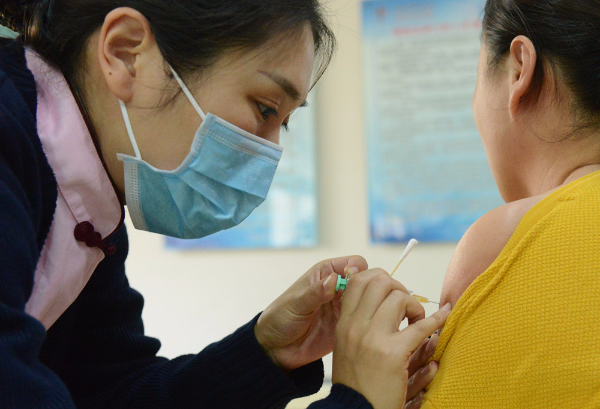HPV vaccine received well in China market
Xinhua | Updated: 2017-12-19 09:53

YINCHUAN - Fan Lei, 32, can't wait to get her first human papilloma virus vaccine after a fretful three-month wait.
"I asked for leave immediately after the call from the community health service center," she said.
The HPV vaccine she received in Yinchuan, Ningxia Hui autonomous region, was developed by US-based Merck and approved by the China Food and Drug Administration to enter the market in May. The first batch reached Chinese consumers a month ago.
The introduction of the new vaccine came after a good response among Chinese women to GlaxoSmithKline's Cervarix, the first HPV vaccine approved for use in China. It was licensed earlier this year.
But Cervarix has an age cap of 25, while the Merck product is available for anyone from 20 to 45 years old.
"In fact, I intended to get the Cervarix vaccination, but was told I was too old," Fan said.
The younger generation in China, especially middle-class women Fan's age or younger, seem to have greater health consciousness than their predecessors. In just one month, the center Fan visited received more than 910 reservations for the new HPV vaccine, but only 280 doses were available, according to the center's Gao Xiaoyan.
The popularity of HPV vaccines in Yinchuan mirrors strong demand nationwide.
According to a report by CA, a cancer journal for clinicians, more than 30,000 patients died of cervical cancer and nearly 99,000 new cervical cancer cases were reported in China in 2015. In other words, three Chinese women died from cervical cancer every hour on average, according to the report, Cancer Statistics in China 2015.
But cervical cancer, which is by far the most common HPV-related disease, can largely be prevented.
According to the World Health Organization, nearly all cases of cervical cancer - the fourth-most-frequent cancer in women - can be attributed to HPV. It can take 15 to 20 years for cervical cancer to develop in women with normal immune systems, and the symptoms tend to appear only after the cancer has reached an advanced stage, making it important to take precautions.
The two HPV vaccines currently available on the market can protect against both HPV 16 and 18, which cause at least 70 percent of cervical cancers, according to the WHO. The vaccines may also offer cross-protection against other less common HPV types that cause cervical cancer.
But for some time, HPV vaccines did not have a green light on the Chinese mainland because of safety concerns, and many people traveled to Hong Kong to get a shot.
A complete HPV vaccination requires three shots within six months, which increased costs to patients.
"Some of my friends went to Hong Kong to get the vaccination, but it's too much trouble to go from Yinchuan. Now that we have it at home, it's much easier," Fan said.
Though one shot of the vaccine costs more than 800 yuan ($120), Fan and her friends believe it is worth the money.
"It is pricey. But compared with the economic and mental burden of the disease, it's nothing," she said.
"Cervical cancer patients are getting younger. We should care more about our health through regular health checkups and proper vaccinations," Fan said.
China is also developing its own HPV vaccine. Clinical testing of a second-generation HPV vaccine, led by the National Institute of Diagnostics and Vaccine Development in Infectious Diseases, was approved by the China Food and Drug Administration in late November. It is expected to enter the market in 2022.
"HPV vaccination can prevent most types of cervical cancers, but a regular health check is still necessary," said Zhou Liwei, vice-chairman of the Center for Disease Prevention and Control in Ningxia.
























